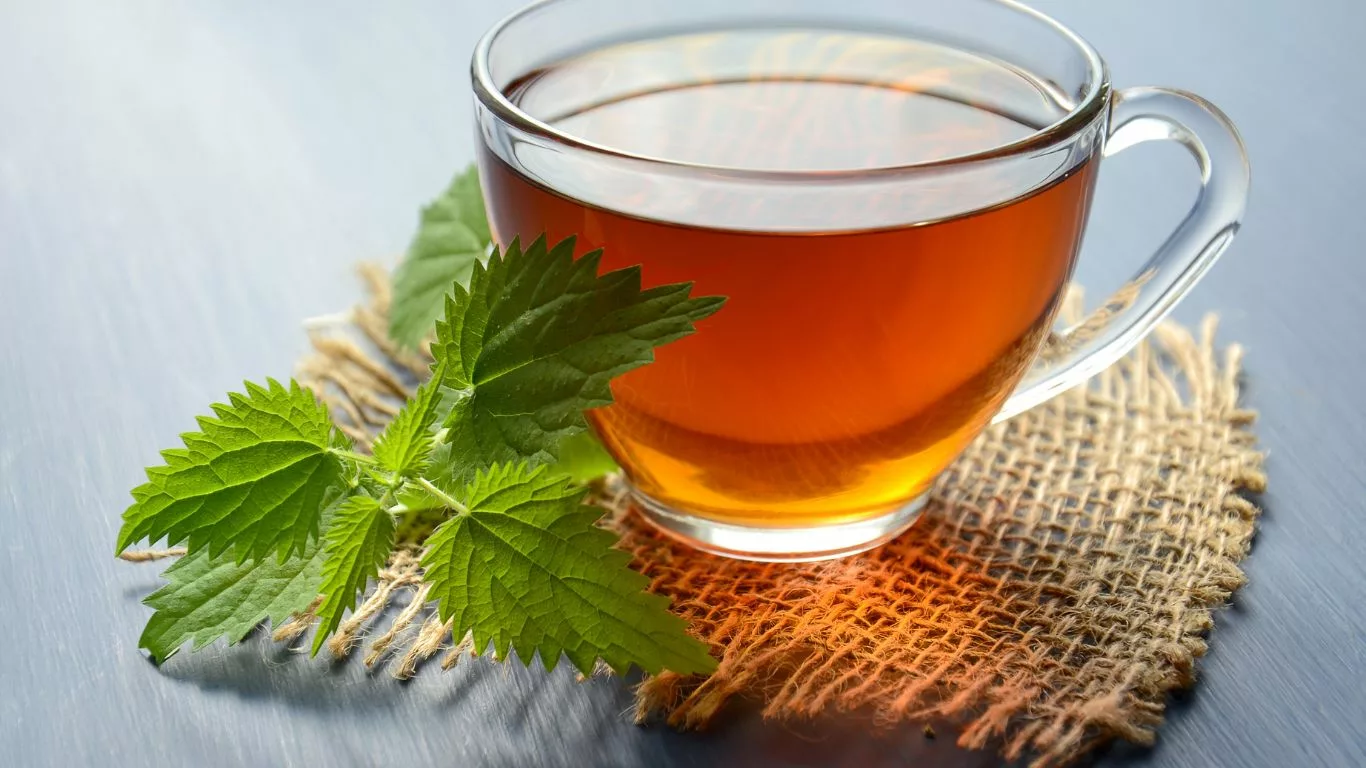Best Herbs for GERD Relief That Actually Work and Soothe Heartburn
When I first started struggling with acid reflux, I honestly didn’t think herbs would make a dent. I was that person living on antacids and sleepless nights. But one evening after dinner, bloated and frustrated, I reached for a cup of slippery elm tea—and everything changed. That was my first step toward understanding that herbs, when used wisely, aren’t just old wives’ tales—they’re powerful, science-backed tools that can help soothe the burn and discomfort of GERD.
Why Consider Herbs for GERD Relief?

Gastroesophageal reflux disease (GERD) affects millions globally, and the standard pharmaceutical route—think proton pump inhibitors and antacids—doesn’t work for everyone. Worse, long-term medication use can come with risks. That’s where herbal therapies step in. Not as replacements for your doctor’s guidance, of course, but as complementary options grounded in tradition and emerging research.
According to the Mayo Clinic, lifestyle and dietary changes play a major role in GERD management. Herbs fit right into that puzzle—gentle enough for daily use but effective enough to calm that burning sensation, ease bloating, and help support healthy digestion.
1. Slippery Elm – The Mucilage Powerhouse

Let’s start with one of my go-to herbs. Slippery elm is rich in mucilage—a gooey, soothing substance that coats the esophagus and stomach lining like a protective hug. It’s particularly helpful if you deal with throat burn or that feeling like something is stuck in your chest.
I like using slippery elm as a tea or lozenge after meals. One study published in the Journal of Alternative and Complementary Medicine found that mucilage-forming herbs like slippery elm may help relieve both heartburn and irritation from acid exposure.
How to Use It
- Mix 1 tsp of powdered slippery elm in warm water and sip slowly
- Take it 30–60 minutes after meals
- Avoid using it with medications, as it might interfere with absorption
2. Chamomile – Gentle, Calming, Effective

Chamomile isn’t just for sleep. It’s a natural anti-inflammatory that can ease digestive upset and reduce stress-induced reflux—something I personally deal with when life gets chaotic. It’s gentle enough for kids and older adults, and it pairs beautifully with honey (if tolerated).
A warm cup before bed became my routine. Not only did it help me unwind, but I noticed fewer flare-ups during the night. That’s a win.
Why It Works
- Relaxes the digestive tract
- May reduce spasms and acid secretion
- Supports stress relief, which is often linked to reflux
Interested in other nighttime relief ideas? Explore these GERD-safe sleeping positions that really helped me during flare-ups.
3. Licorice Root (DGL) – A Sweet Soother

Before you panic about the blood pressure-spiking reputation of licorice, here’s the deal: DGL (deglycyrrhizinated licorice) is a safer, stripped-down version that still helps heal and protect the stomach lining. It’s often used in natural GERD protocols for its ability to promote mucous production and tissue repair.
When I switched from OTC antacids to DGL chewables, I didn’t expect much—but within a week, I felt a noticeable difference in how my chest and throat responded after eating.
Smart Use Tips
- Opt for DGL chewable tablets before meals
- Stick to under 500mg per dose
- Check with your doctor, especially if you take blood pressure meds
For a deeper dive into how DGL works and safe usage, check out this helpful guide: DGL Licorice for GERD Relief.
4. Ginger – The Digestive Workhorse

If there’s one herb that lives in my kitchen 24/7, it’s ginger. I add it to everything—soups, teas, even smoothies. Ginger is a natural anti-nausea, anti-inflammatory, and pro-digestion root that can help with acid reflux when used moderately.
I once made the mistake of having ginger shots thinking more was better—bad idea. Stick to low doses and mild preparations, like tea or infused water.
Read more about its effectiveness here: How Ginger Alleviates Acid Reflux.
Choosing the Right Herb for You

Not every herb works for every person. Some folks thrive with chamomile, others swear by licorice. That’s the thing about natural remedies—you’ve got to listen to your body and sometimes play herbal detective. What helped me won’t necessarily work for you, and that’s perfectly normal.
Herbs work best as part of a larger GERD-friendly strategy, which includes dietary choices, meal timing, and avoiding specific triggers. If you’re unsure where to start, check out this comprehensive GERD diet plan that actually works for guidance.
Want to explore more reflux-safe remedies? Here’s a great guide on natural heartburn relief strategies worth checking out.
5. Marshmallow Root – A Hidden Gem for Soothing GERD

If you haven’t heard much about marshmallow root for GERD, you’re not alone. It’s one of those underrated herbs I only stumbled on while browsing a small health store looking for throat relief. But after trying it for a few weeks, I was genuinely surprised—it reduced that dry, scratchy sensation in my throat that reflux often leaves behind.
Marshmallow root is packed with mucilage, like slippery elm, and helps form a soothing film over mucous membranes. It’s especially beneficial for those who experience GERD-related throat discomfort or frequent irritation from silent reflux.
How to Use Marshmallow Root
- Steep 1–2 teaspoons of dried root in hot water for 10–15 minutes
- Drink 1–2 cups daily between meals
- Try it in cold infusions for a more mucilage-rich effect
6. Fennel Seeds – Post-Meal Support That Tastes Good

I grew up in a household where chewing fennel seeds after dinner was tradition—but I never knew why. Turns out, fennel seeds are naturally antispasmodic and can ease bloating, gas, and post-meal reflux. Now I keep a small jar in my kitchen just like my mom did.
Here’s what makes fennel shine for GERD:
- Helps relax the digestive tract
- May reduce pressure on the lower esophageal sphincter
- Can aid in digestion and minimize gas buildup
Curious about more digestive-friendly foods? This guide on what to eat for acid reflux is packed with gentle options.
7. Aloe Vera – A Cooling Option for Acid Relief

I’ll be honest—aloe vera juice was a bit weird to get used to. It’s slightly bitter and not exactly what you’d call delicious. But once I found a purified, decolorized version, it became part of my morning routine. Aloe vera can help cool inflammation and soothe an irritated esophagus.
Important: Only use decolorized, purified aloe vera juice labeled for internal use. Raw latex-containing aloe can be harsh and even toxic in large amounts.
Want to learn more about safe use? Here’s an in-depth breakdown: Aloe Vera for Acid Reflux Relief.
Suggested Use
- Drink 1/4 cup before meals, once or twice daily
- Mix with herbal tea or water to soften the taste
- Ensure you’re using food-grade aloe only
8. Turmeric – Anti-Inflammatory Support with a Twist

Turmeric isn’t the first herb people think of for reflux, but its powerful anti-inflammatory effects deserve a closer look. Chronic inflammation in the esophagus and stomach lining can worsen GERD symptoms, and turmeric may help calm that fire.
I personally prefer taking it as “golden milk” with almond milk before bed—soothing, delicious, and it doubles as an anti-inflammatory nightcap.
Just be mindful: turmeric in large amounts can stimulate stomach acid, so moderation is key. And always include a fat (like coconut milk) and a pinch of black pepper to increase absorption.
Mixing Herbs Safely – Tips from Experience

It’s tempting to try all the herbs at once—I’ve done it. But more doesn’t always mean better. Your digestive system might respond best to one or two herbs taken consistently rather than a cocktail of options.
Here’s What Worked Best for Me:
- Start with one herb at a time, especially if you’re new to herbal support
- Give it 7–10 days before judging effectiveness
- Space herbs 1–2 hours apart from prescription medications
- Rotate herbs every few weeks to see which your body prefers
If you’re already on GERD medications, consult your doctor or a qualified herbalist before adding new supplements. While most of these herbs are gentle, some (like turmeric or licorice) can affect medication metabolism.
Common Herbal Mistakes That May Worsen Symptoms

Let’s not sugarcoat it—natural doesn’t always mean harmless. I’ve made some mistakes early on that made my reflux worse. Here are a few traps to avoid:
- Overusing raw ginger or turmeric shots – they’re too strong and can irritate an already sensitive stomach
- Using herbs with caffeine (like yerba mate) – big mistake for reflux!
- Not checking labels on aloe vera – unfiltered aloe can cause cramps and diarrhea
- Expecting instant results – herbs are subtle and need consistency
Need help calming throat burn specifically? This guide has been a lifesaver: Soothing Acid Reflux Throat Burn Naturally.
And if you’re wondering whether these natural approaches are even effective, this Pillar article on natural GERD remedies offers a comprehensive breakdown backed by real-world insight and science.
When to Avoid Herbal Remedies for GERD

As much as I love a natural approach, it’s important to recognize when herbs might not be the best choice. There were moments in my own journey—like when my reflux flared into severe chest pain—that herbs alone couldn’t cut it. That’s when I knew it was time to seek medical guidance.
Red Flags That Need a Doctor’s Insight:
- Unexplained weight loss or persistent vomiting
- Chest pain that mimics heart issues
- Difficulty swallowing or a sensation of food sticking
- Black, tarry stools or vomiting blood (a sign of internal bleeding)
These symptoms may signal complications like esophagitis or Barrett’s esophagus, and waiting it out with herbal tea just isn’t smart. In fact, the National Institute of Diabetes and Digestive and Kidney Diseases emphasizes early intervention for long-term GERD.
Want to understand more about serious warning signs? Here’s a detailed breakdown of GERD symptoms you shouldn’t ignore.
Combining Herbs with Lifestyle Shifts

Herbs can be powerful, but they work even better when you pair them with small lifestyle tweaks. Trust me, the changes don’t have to be dramatic to be effective—I started with the simple stuff: not lying down after dinner, swapping out coffee for herbal tea, and taking shorter evening walks.
According to a 2020 study in the Journal of Gastroenterology, non-pharmacological approaches such as dietary adjustments and stress management significantly improved GERD outcomes. Herbs can slot into this mix as gentle allies.
Simple Ways to Support Herbal Use:
- Use a wedge pillow to elevate your head at night
- Eat smaller, more frequent meals
- Track triggers in a food journal
- Limit late-night eating (my biggest challenge!)
- Reduce ultra-processed and high-fat meals
Need a full strategy? This resource on GERD lifestyle changes that actually work is incredibly practical.
Are Herbal Blends Better Than Single Herbs?

There’s a bit of debate in the wellness space over whether it’s better to use single herbs or blends. Personally, I’ve used both. I found that individual herbs helped me identify what worked best for my body, while blends became part of my routine once I knew what was effective.
For instance, I keep a blend with licorice, marshmallow, and chamomile on hand for those nights when I feel a flare coming. It’s like an herbal insurance policy.
If you’re just getting started, try a single herb approach first—like a few nights of slippery elm tea—before combining. That way, you can track your body’s reactions without confusion.
My Personal Herb Pairing Routine

Since so many people ask what my daily herbal routine looks like, here’s a simple version:
- Morning: Ginger or fennel tea with breakfast
- Midday: Aloe vera juice 30 mins before lunch
- Afternoon: Slippery elm tea or DGL licorice 30 mins after meal
- Evening: Chamomile tea or golden turmeric milk to wind down
It’s not fancy. It’s not even that strict. But I’ve noticed fewer flare-ups, better sleep, and less need for antacids. And for someone who used to keep a bottle of pink liquid in every room? That’s a huge win.
Final Thoughts – Herbs Are Tools, Not Magic Bullets

If there’s one thing I want to leave you with, it’s this: herbs don’t cure GERD, but they can help you live better with it. They offer support—gentle, natural, and often quite effective—but they’re not a substitute for medical care or comprehensive management.
Start slow, stay consistent, and trust your body. The journey may take some trial and error, but it’s worth it. I’ve gone from daily reflux to occasional flutters—no longer a slave to antacids, and feeling more in control than ever.
If you’re exploring your first herbal remedy, consider checking out this complete overview of natural GERD solutions that actually work.
And remember, the best results come when you combine natural support with a solid foundation of diet, sleep, stress management, and a GERD-friendly eating plan.

Bianca Nala is a compassionate Nurse Practitioner with a strong background in primary and respiratory care. As a health writer for Healthusias.com, she combines her clinical expertise with a talent for clear, relatable storytelling to help readers better understand their health. Bianca focuses on topics like asthma, COPD, chronic cough, and overall lung health, aiming to simplify complex medical topics without losing accuracy. Whether she’s treating patients or writing articles, Bianca is driven by a single goal: making quality healthcare knowledge accessible to everyone.







